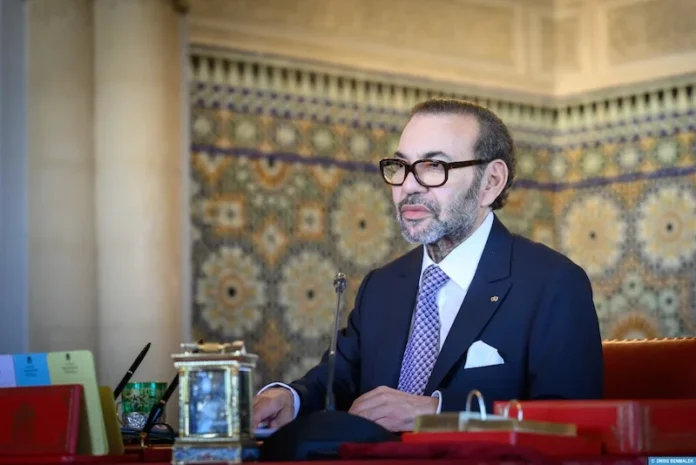In a remarkable political scene, the Ministerial Council chaired by King Mohammed VI in Rabat carried a decision that observers considered a direct blow to the Head of Government and former Minister of Agriculture, Aziz Akhannouch, when a clear royal directive was issued stating that the task of supervising and distributing aid to farmers would be entrusted to committees under the supervision of the Ministry of Interior, and not the Ministry of Agriculture as usual.
Despite the technical wording of the official statement, the background and timing of the decision lead to a deeper political reading, especially in light of the “livestock aid” scandal that shook public opinion last year, when 18 intermediaries benefited from more than 1.3 billion dirhams in a suspicious distribution operation, described from within the government itself as unethical.
Has Akhannouch lost one of his strategic keys?
When a sensitive file like farmer aid is withdrawn from the Ministry of Agriculture – which Akhannouch headed for decades and where he oversaw his “Green Plans” – and handed over to the Ministry of Interior, several questions arise:
-
Has the King lost trust in the Ministry of Agriculture’s ability to manage aid files free of favoritism and corruption?
-
Are we witnessing the beginning of the end of the “Akwa system” domination over state apparatus?
-
What messages are being sent domestically and internationally about the limits of overlap between political authority and economic interests?
Minister of Interior… a new player in a sensitive social file
Assigning the supervision of agricultural aid to the Ministry of Interior, led by Abdelouafi Laftit – known for his strict administrative approach and distance from Akhannouch’s economic circles – implies a new balance in managing sovereign social files. This is a shift in governance logic that may pave the way for broader changes in the handling of sensitive files, especially those related to food security and territorial justice.
The “fraqchia” scandal… the last straw for “Akhannouchism”?
The scandal of sheep aid, exposed by Nizar Baraka, Minister of Equipment and Water, did not go unnoticed. When the echoes of corruption reach the royal palace, it means red lines have been crossed. It is telling that the Ministry of Agriculture was stripped of its prerogatives in official silence but under the strong moral presence of the royal institution, hinting that politics in Morocco is sometimes managed through unspoken signals that are clear to those who understand the context.
The bigger question: has Akhannouch’s political countdown begun?
Since his appointment as Head of Government, Aziz Akhannouch has moved within a protected sphere, placing his close associates – businessmen, company directors, and even secretaries – in key ministerial and institutional positions. But is this model still acceptable in Morocco 2025, where economic and social crises are worsening and calls for accountability and economic justice are rising?
The Palace’s signal – even if not stated explicitly – clearly says that the mixing of responsibility and personal gain will no longer be tolerated.


